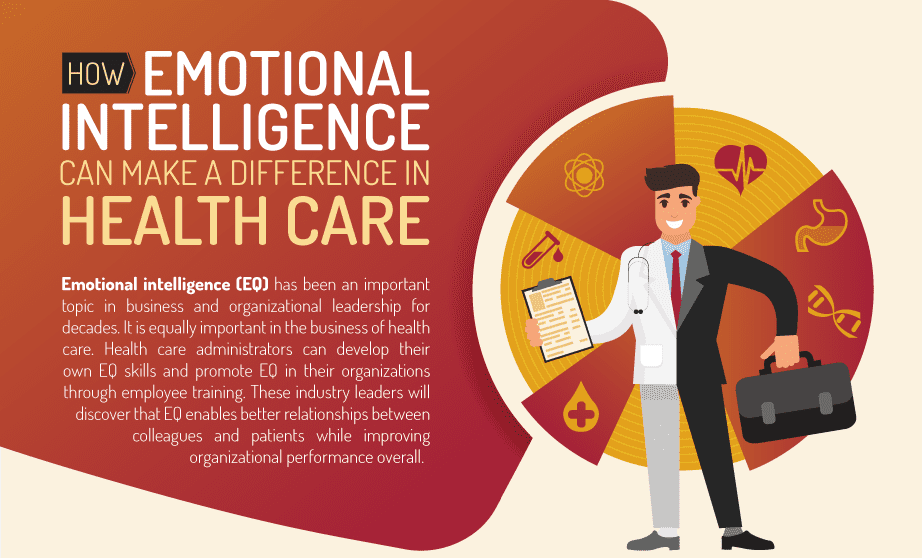Studies show that Emotional Intelligence (EI) plays a significant role in the bedside manner of care providers. What’s more, healthy emotional intelligence fosters trust between medical professionals and patients, and as a result, doctor-patient relationships flourish, resulting in increased patient satisfaction and compliance.
This trait is invaluable for medical professionals. Care providers who possess ample emotional intelligence are better equipped to deal with the challenges and stresses experienced when working to heal others. Also, practitioners who possess EI are less inclined to experience stress to the point of burnout.
Emotional intelligence is not a new concept. Still, there is a revitalized interest in EQ among healthcare leaders. EI is a behavioral competency that’s distinct from intelligence quotient (IQ), and it greatly impacts care provider performance and patient treatment outcomes.
Today, most all healthcare organizations are working to deliver patient-centered care. As a result, many hospital administrators are deploying new care models. However, patient-centered care is about more than innovative methods of care delivery. It’s about relationships as well as the exchanges that take place between medical professionals and patients.
In the 1980s, research showed that professional performance was typically the result of people skills rather than technical skills. Later, in 1998, a Harvard Business Review article about emotional intelligence built on this research. It was, at the time, the most extensively read article in HBR’s four-decade history.
Then, the concept was widely accepted in the business community. Yet, it did not gain popularity among healthcare executives.
Now, however, EI is of increasing interest among hospital administrators who are in search of what drives advancements in patient-centered care.
They are finding that medical professionals who possess emotional intelligence are focused, willing to accept accountability and quick to correct errors. Furthermore, their sincere compassion and empathy directly contribute to improving treatment outcomes.
To find out more about emotional intelligence check out this infographic from Regis College Master of Health Administration program.

Related Topics
- 5 Ways AI will change eCommerce
- 5 Benefits of Healthcare Apps
- Top 5 AI-driven M-Commerce Trends
- Using Machine Learning to Boost Business Development
- Key to Successful Online Retail Business in Nigeria
- Challenges to Online Shopping in Nigeria
- Building a Worthy Online Retail Business in Nigeria
- Online Stores in Nigeria






